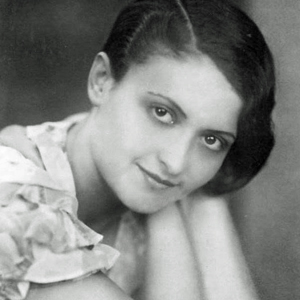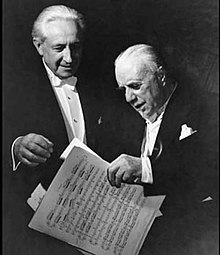
Max Reinhardt was an Austrian-born theatre and film director, intendant, and theatrical producer. With his radically innovative and avante garde stage productions, Reinhardt is regarded as one of the most prominent stage directors of the early 20th century.

Glyndebourne is an English country house, the site of an opera house that, since 1934, has been the venue for the annual Glyndebourne Festival Opera. The house, located near Lewes in East Sussex, England, is thought to be about six hundred years old and listed at grade II.

The Staatsoper Unter den Linden, also known as the Berlin State Opera, is a listed building on Unter den Linden boulevard in the historic center of Berlin, Germany. The opera house was built by order of Prussian king Frederick the Great from 1741 to 1743 according to plans by Georg Wenzeslaus von Knobelsdorff in the Palladian style. Damaged during the Allied bombing in World War II, the former Royal Prussian Opera House was rebuilt from 1951 to 1955 as part of the Forum Fridericianum square. Nicknamed Lindenoper in Berlin, it is "the world´s oldest state opera" and "the first theater anywhere to be, by itself, a prominent, freestanding monumental building in a city."

The Edinburgh International Festival is an annual arts festival in Edinburgh, Scotland, spread over the final three weeks in August. Notable figures from the international world of music and the performing arts are invited to join the festival. Visual art exhibitions, talks and workshops are also hosted.

The Deutsche Oper Berlin is a German opera company located in the Charlottenburg district of Berlin. The resident building is the country's second largest opera house and also home to the Berlin State Ballet.

Glyndebourne Festival Opera is an annual opera festival held at Glyndebourne, an English country house near Lewes, in East Sussex, England.

Fritz Busch was a German conductor.

Hans Schmidt-Isserstedt was a German conductor and composer. After studying at several music academies, he worked in German opera houses between 1923 and 1945, first as a répétiteur and then in increasingly senior conducting posts, ending as Generalmusikdirektor of the Deutsche Oper Berlin.
John Christie was an English landowner and theatrical producer. He was the founder of the Glyndebourne Opera House and the Glyndebourne Festival Opera at his home at Glyndebourne, near Lewes in Sussex in 1934.
Caspar Neher was an Austrian-German scenographer and librettist, known principally for his career-long working relationship with Bertolt Brecht.

The Hessisches Staatstheater Wiesbaden is a German theatre located in Wiesbaden, in the German state Hesse. The company produces operas, plays, ballets, musicals and concerts on four stages. Known also as the Staatstheater Wiesbaden or Theater Wiesbaden, its orchestra is the Hessisches Staatsorchester. The building was inaugurated in 1894.
Grace Audrey Laura St John-Mildmay was an English and Canadian soprano and co-founder, with her husband, John Christie, of Glyndebourne Festival Opera. The Canadian Encyclopedia describes her voice "as a light lyric soprano employed with much charm."

Peter Ebert was a German opera director. Son of noted German director Carl Ebert who left Nazi Germany in 1934 with his son and moved to England, he was best known for his work with Glyndebourne Opera and the Scottish Opera where he staged over 50 productions from 1963 to 1980 and which brought him great success.
The Moderate Soprano is a 2015 play by the British playwright David Hare. It is a historical play dealing with John Christie, his founding of Glyndebourne Opera and his romance and marriage with Audrey Mildmay, the eponymous soprano.

Irene Eisinger was a German and British opera singer and film actress. Her career was closely linked to the foundation and the early years of the Glyndebourne Festival Opera.
Hans Oppenheim was a German-born conductor. He was son of the Jewish German neurologist Hermann Oppenheim.
Moran Victor Hingston Caplat, CBE was an English opera manager, associated throughout his career with Glyndebourne Festival Opera.
Rudolf Sellner, born Gustav Rudolf Sellner was a German actor, dramaturge, stage director, and intendant. He represented in the 1950s a radical Instrumentales Theater. After decades of acting and directing plays, he turned to staging operas, and was a long-time intendant of the Deutsche Oper Berlin from 1961, when the Berlin Wall was built. He staged notable world premieres, including Ernst Barlach's play Der Graf von Ratzeburg in 1951, Ionesco's Mörder ohne Bezahlung in 1958, Giselher Klebe's Alkmene in 1961 for the opening of the Deutsche Oper, and Aribert Reimann's opera Melusine in 1971.
Luise Helletsgruber was an Austrian operatic soprano, who performed at the Vienna State Opera, the Salzburg Festival and the Glyndebourne Festival Opera.
Leopold Ludwig was a German conductor active mainly in Austria and Germany from the 1930s through the 1970s. He was principal conductor of the Oldenburgisches Staatstheater (1936–1939), Vienna State Opera (1939–1943), and Berlin Städtische Oper (1943–1946). From 1950–1971 he the general music director of the Hamburg State Opera; a position which brought him international recognition. He was a frequent guest conductor at the San Francisco Opera from 1958 through 1969, and also made guest appearances with the Metropolitan Opera in the early 1970s.













